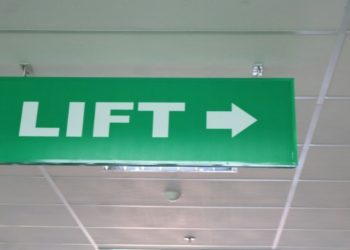For many tenants, getting their full deposit back at the end of a tenancy can be a source of stress. Whether you’re renting a cosy flat in the heart of Guildford or a family home on the outskirts, following the right steps can help ensure you get your full deposit returned. Landlords or estate and letting agents in Guildford are legally obligated to protect your deposit in a tenancy deposit protection scheme, but disputes over deductions can still arise if expectations are not met.
In this guide, we’ll walk you through practical steps to follow when moving out to improve your chances of getting your full deposit back, avoid common pitfalls, and ensure a smooth handover.
1. Understand Your Tenancy Agreement
Your tenancy agreement is the contract that outlines your obligations as a tenant. From the moment you move in, it’s important to fully understand the responsibilities outlined in this document. Most tenancy agreements include a section on how you should leave the property when vacating it, detailing everything from cleaning standards to returning keys.
Some common obligations include:
– Ensuring the property is left in the same condition as when you moved in (except for normal wear and tear).
– Addressing any damage you’ve caused beyond normal usage.
– Returning all the original items such as furniture and appliances in the condition you received them.
By understanding these requirements ahead of time, you can take appropriate actions as your move-out date approaches, ensuring no nasty surprises.
2. Carry Out an Inspection Before You Move In
One of the best ways to avoid disagreements at the end of your tenancy is to conduct a thorough inspection when you first move into the property. This can serve as a reference for the state of the property and can prevent any unfair deductions later on.
When inspecting the property:
– Take detailed photographs of every room, including the condition of the walls, flooring, appliances, and furniture (if the property is furnished).
– Check for any pre-existing damage or wear and tear and ensure it’s documented by the landlord or estate and letting agents in Guildford.
– Keep copies of any written reports or inventories that highlight the condition of the property at the beginning of your tenancy.
Having this documentation will be valuable if there are disputes when you move out.
3. Maintain the Property Throughout Your Tenancy
While it might seem obvious, keeping the property clean and well-maintained during your tenancy will make the move-out process much easier. Regular cleaning and promptly addressing any maintenance issues are essential to prevent small problems from becoming bigger ones.
Here are some tips to maintain the property:
– Clean your home regularly, especially high-use areas like the kitchen and bathroom.
– Report any damage or repair needs to your landlord as soon as they occur. Delaying repairs can make the problem worse and could lead to more significant damage, which might result in a deduction from your deposit.
– Avoid making any unauthorised changes to the property, such as painting the walls or installing shelves, without the landlord’s permission.
Remember, it’s easier to keep up with regular maintenance than to face a daunting clean-up when you move out.
4. Deep Clean Before You Leave
One of the most common reasons landlords make deductions from a deposit is due to cleaning. It’s vital to leave the property in a spotless condition. The better it looks, the more likely you are to get your full deposit back.
Focus on these areas during your clean-up:
– Kitchen: Clean appliances, such as the oven, hob, fridge, and microwave. Make sure cupboards are wiped down, and any grease or grime is removed from surfaces.
– Bathroom: Clean all tiles, fixtures, and fittings. Descale taps and shower heads and remove any mould or mildew from tiles or sealant.
– Floors: Hoover carpets and mop any hard flooring. If you’ve had pets, consider hiring a professional carpet cleaner to remove any lingering odours or stains.
– Windows: Clean all windows inside and out. Dust blinds and wipe down windowsills.
– Furniture: If the property was furnished, make sure you wipe down all furniture and check for any damage.
If you feel the cleaning might be too much to handle on your own, consider hiring a professional cleaning service. Always keep the receipt to provide proof that the property was professionally cleaned, which can help in case of any disputes.
5. Make Minor Repairs
Small repairs can make a big difference in ensuring you get your deposit back. If there are any minor issues, it’s worth fixing them yourself before you move out. These might include:
– Fill in small holes or marks left by picture hooks or nails.
– Replacing any burnt-out lightbulbs or damaged fixtures.
– Repairing or replacing anything you’ve broken during your tenancy, such as blinds or door handles.
However, be careful not to overstep – if you’re unsure about how to repair, it might be worth consulting your landlord or the estate agents in Guildford to avoid causing further damage.
6. Check the Inventory Report
Your inventory report is a detailed list of the items in the property, along with their condition when you moved in. Cross-reference this report with the current state of the property before handing it back. It’s essential to ensure that everything matches the original inventory, so be thorough in checking that:
– All items listed in the inventory are still present and in their original condition.
– Any damage that occurred during your tenancy has been fixed or documented.
– Furniture or appliances are returned to their original location if you moved them around.
If you notice any discrepancies, bring them up with your landlord or the letting agents in Guildford ahead of your final inspection to avoid issues later.
7. Return Keys on Time
Make sure you return all the keys you were given when you first moved in. This includes keys to the property, any shared access areas (like gardens or car parks), and additional items like garage door openers. Failure to return all keys could result in additional charges, as the landlord may need to change locks.
8. Be Present During the Final Inspection
It’s always a good idea to be present during the final inspection. This allows you to discuss any concerns directly with the landlord or the letting agents in Guildford and clarify any potential issues on the spot. It also allows you to provide proof of cleaning, repairs, or other efforts you’ve made to return the property to its original condition.
If there are any disagreements, having an open conversation during the inspection can help resolve them before they escalate into formal disputes.
9. Know Your Rights for Deposit Disputes
If your landlord tries to withhold any part of your deposit and you don’t agree with the deduction, you have the right to dispute it. The tenancy deposit protection schemes require landlords to follow a set process for disputes, which often involves providing evidence to support any deductions. If you’ve followed the steps in this guide, you should have all the documentation and proof you need to contest any unfair deductions.
Conclusion
Getting your full deposit back when moving out requires some planning and attention to detail. By understanding your tenancy agreement, maintaining the property during your tenancy, and ensuring everything is cleaned and in good condition before you leave, you’ll have a much better chance of getting your full deposit returned. Whether you’re dealing with your landlord directly or working through estate and letting agents in Guildford, being proactive and organised is the key to a smooth and successful move-out process.





![7 Best POS Software in the UK [2026 Edition]](https://todaynews.co.uk/wp-content/uploads/2026/02/7-Best-POS-Software-in-the-UK-2026-Edition-360x180.png)





































































